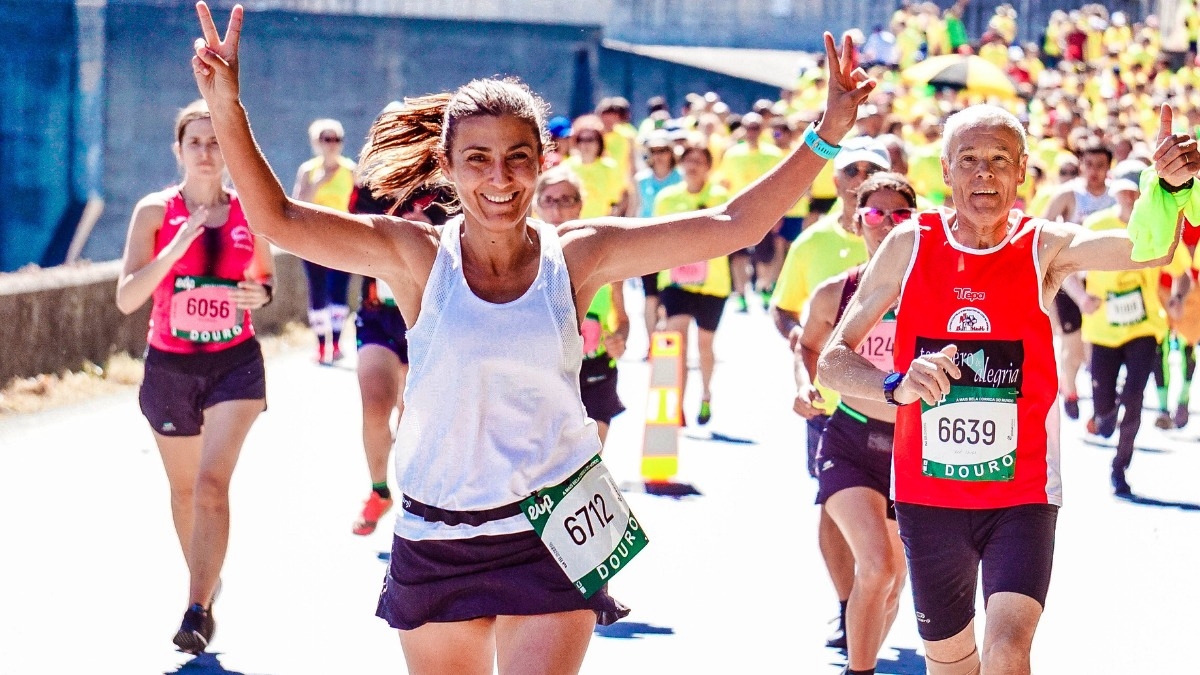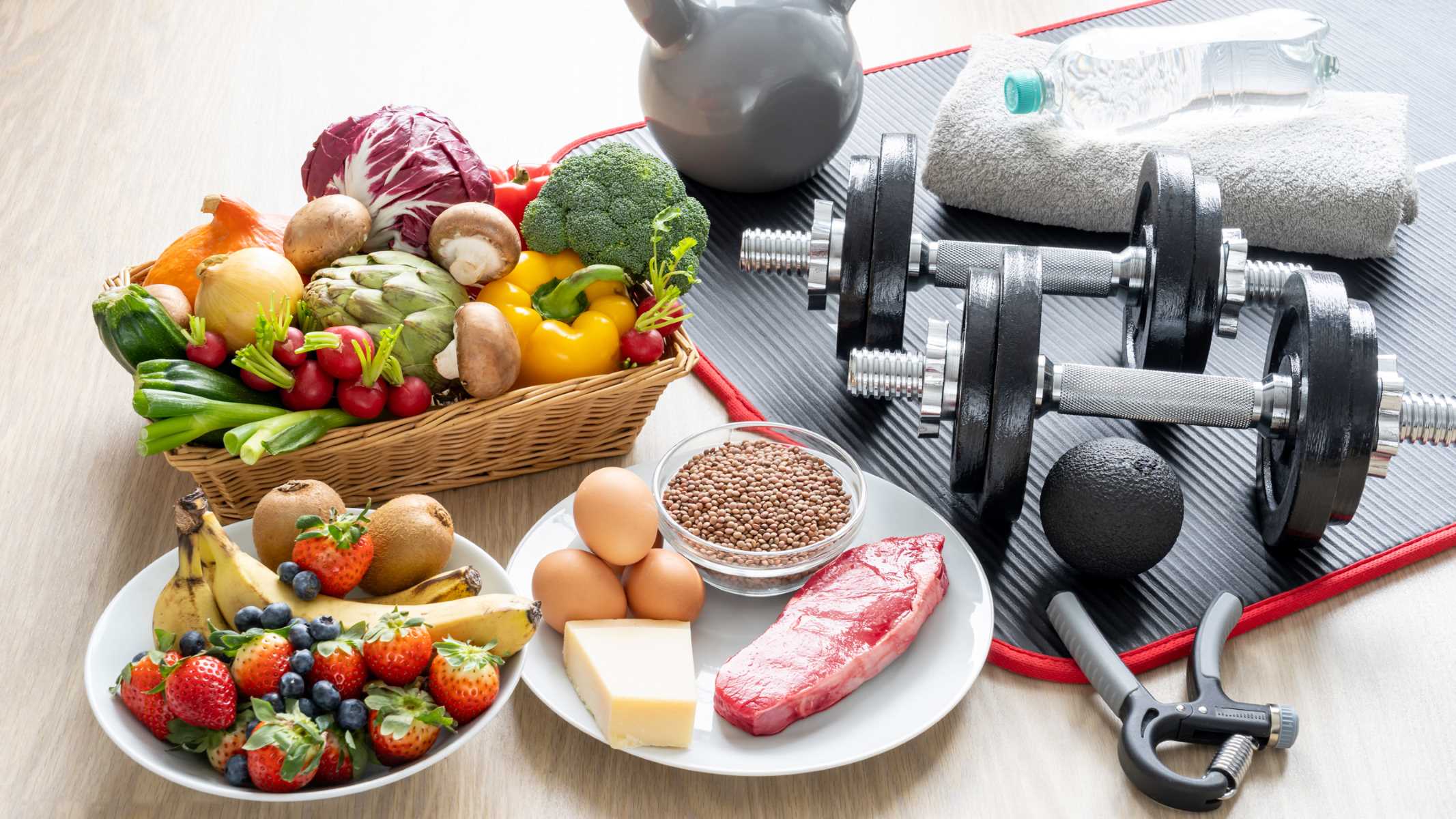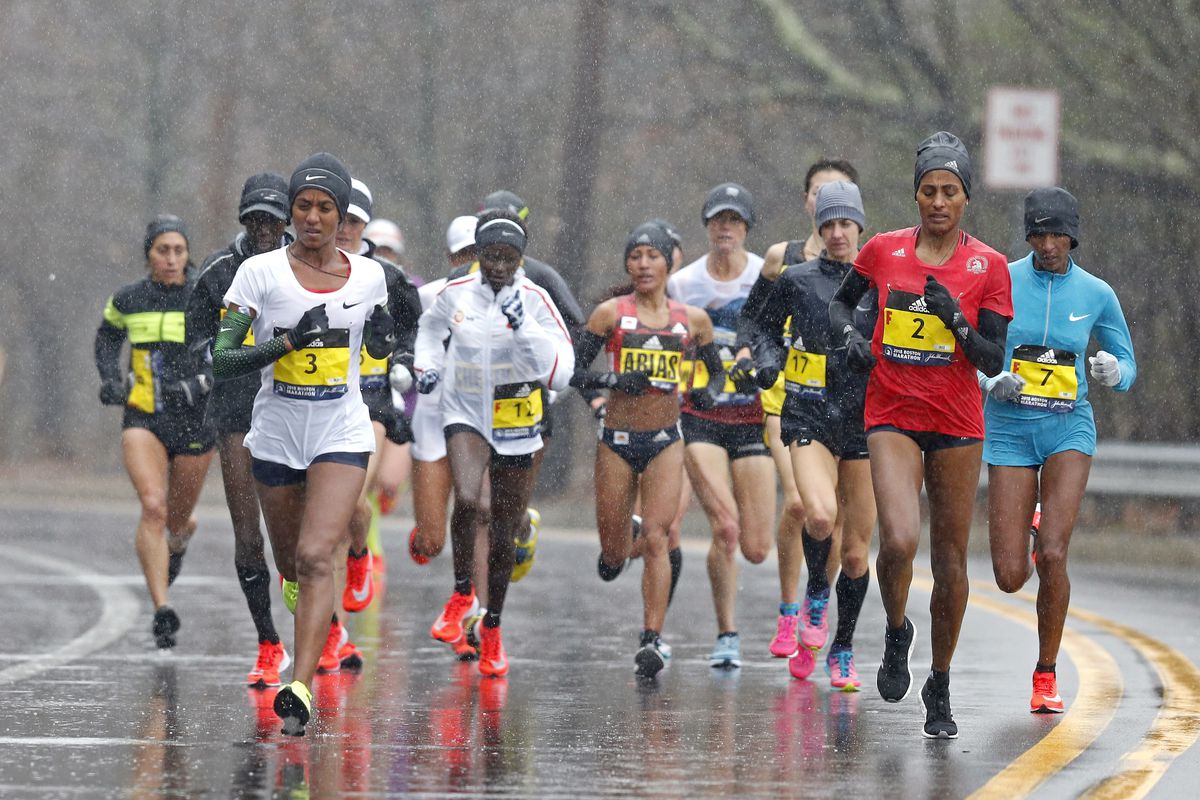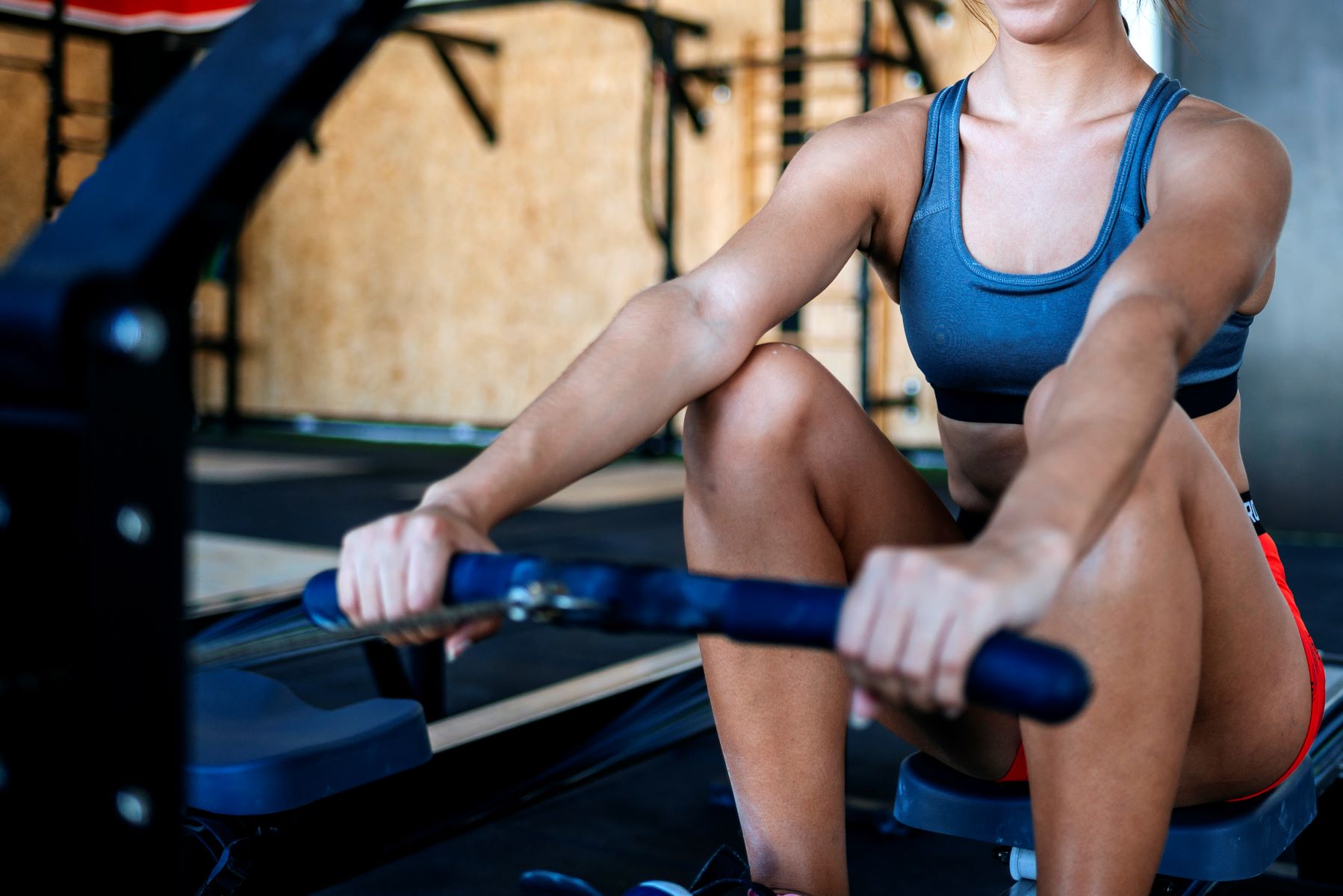Home>Misc>Featured>What Should I Eat 30 Minutes Before A Workout
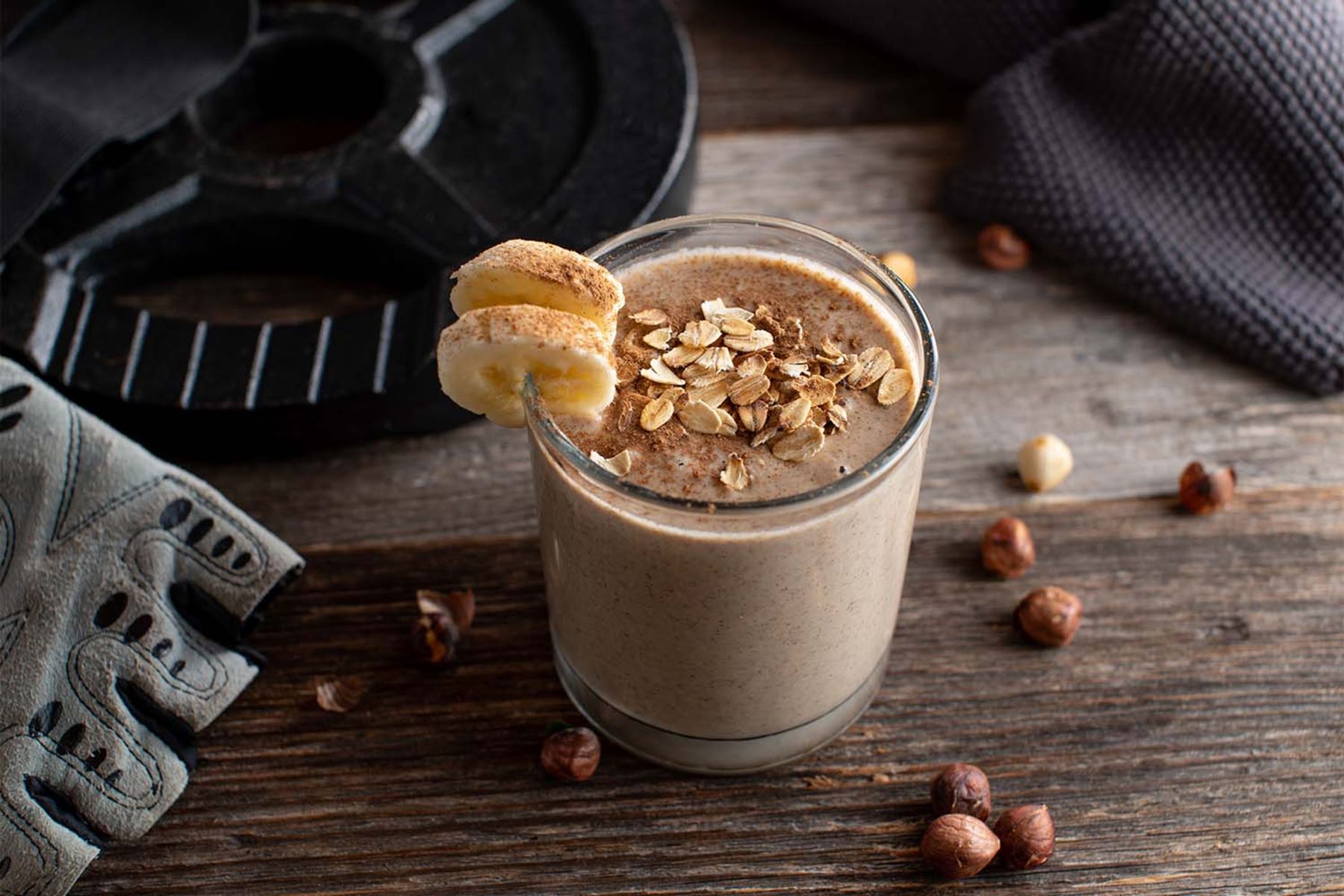

Featured
What Should I Eat 30 Minutes Before A Workout
Modified: August 19, 2023
Looking for the perfect pre-workout meal? Discover featured ideas for what to eat 30 minutes before a workout to fuel your fitness routine effectively.
Introduction
When it comes to maximizing your workout performance and achieving your fitness goals, proper nutrition plays a crucial role. Whether you’re hitting the gym, going for a run, or engaging in any form of physical activity, what you eat before a workout can significantly impact your energy levels, endurance, and overall performance.
Pre-workout nutrition involves consuming the right balance of macronutrients and fluids to fuel your body and optimize its performance during exercise. It is essential to provide your body with the necessary energy and nutrients to enhance your workout and recover effectively afterward.
However, with countless dietary recommendations, opinions, and trends out there, it can be overwhelming to determine what to eat and when to eat it. Every individual is different, and what works for one person may not work for another. It’s essential to consider various factors and listen to your body to find the best pre-workout meals that suit your needs.
In this article, we will explore the importance of pre-workout nutrition, discuss the factors to consider when choosing pre-workout meals, and provide some practical and healthy meal ideas to fuel your workouts effectively.
Importance of Pre-Workout Nutrition
Pre-workout nutrition is essential for optimizing athletic performance, supporting muscle growth and recovery, and sustaining energy levels throughout your workout. It provides your body with the necessary nutrients and fuel to perform at its best, preventing fatigue, muscle breakdown, and impaired performance.
One of the primary goals of pre-workout nutrition is to provide your body with readily available energy to fuel your exercise. Carbohydrates are the key macronutrient for this purpose. They are the primary source of fuel for your muscles and are stored in the form of glycogen in your body. By consuming carbohydrates before your workout, you replenish your glycogen stores and ensure that your muscles have enough fuel to perform at their optimal level.
In addition to providing energy, pre-workout nutrition also helps enhance endurance and delay fatigue. When you consume carbohydrates before exercise, your body breaks them down into glucose, which gets transported to your muscles. This glucose is then converted into energy through a process called glycolysis. By ensuring that your muscles have a steady supply of glucose, you can sustain high-intensity exercise for longer periods without feeling exhausted.
Furthermore, pre-workout nutrition plays a crucial role in preventing muscle breakdown. During intense exercise, your body may use amino acids from muscle protein as an energy source. By consuming a pre-workout meal or snack rich in protein, you supply your muscles with additional amino acids. This helps prevent muscle breakdown and supports muscle growth and recovery.
Another important aspect of pre-workout nutrition is hydration. Proper hydration is essential for maintaining optimal bodily functions and preventing dehydration during exercise. When you are dehydrated, your body’s performance and endurance levels can suffer, leading to decreased energy and reduced exercise capacity. By adequately hydrating before your workout, you can ensure optimal performance and prevent the negative effects of dehydration.
In summary, pre-workout nutrition is vital for maximizing your exercise performance and achieving your fitness goals. It provides your body with the necessary energy, nutrients, and hydration to enhance endurance, sustain energy levels, prevent muscle breakdown, and support muscle growth and recovery. By fueling your body properly before a workout, you give yourself the best chance to perform at your best and optimize your results.
Factors to Consider Before Choosing Pre-Workout Meals
When it comes to choosing the right pre-workout meals, there are several factors to consider. By taking these factors into account, you can tailor your pre-workout nutrition to meet your specific needs and optimize your workout performance.
1. Timing: The timing of your pre-workout meal is crucial. Eating too close to your workout can cause discomfort and may affect your performance. On the other hand, if you eat too far in advance, you may feel hungry during your workout. Aim to consume your pre-workout meal approximately 1 to 3 hours before exercising to allow for proper digestion.
2. Meal size: The size of your pre-workout meal should be appropriate, depending on the duration and intensity of your workout. For shorter, less intense sessions, a smaller meal or snack may be sufficient. For longer and more intense sessions, a larger meal that provides sustained energy is recommended.
3. Macronutrient balance: A balanced combination of carbohydrates, protein, and healthy fats is essential for pre-workout meals. Carbohydrates provide energy, protein supports muscle repair and growth, and healthy fats provide sustained energy. Aim for a ratio of approximately 3:1 or 4:1 of carbohydrates to protein.
4. Personal preferences: Consider your own dietary preferences and restrictions when choosing pre-workout meals. Opt for foods that you enjoy and that fit within your dietary preferences, whether it’s vegetarian, vegan, gluten-free, or any other specific requirement.
5. Digestibility: Choose foods that are easily digestible to avoid discomfort and bloating during your workout. Foods high in fiber and fat may take longer to digest, so it’s best to choose options that are lower in these components before exercise.
6. Individual tolerance: Each person’s digestive system is unique. Pay attention to how different foods make you feel before workouts. Experiment with different meal options and adjust accordingly based on your body’s response.
By considering these factors, you can make informed decisions when it comes to choosing the most suitable pre-workout meals for your needs. Remember to listen to your body and make adjustments as necessary. Optimal pre-workout nutrition can help maximize your performance and achieve the best results from your workouts.
Macronutrients to Include in Pre-Workout Meals
When planning your pre-workout meals, it’s important to ensure a balance of macronutrients that will provide the necessary energy and support for your workout. The three key macronutrients to include in your pre-workout meals are carbohydrates, protein, and healthy fats.
1. Carbohydrates: Carbohydrates are the primary source of energy for your muscles during exercise. They are quickly digested and converted into glucose, which fuels your workout. Opt for complex carbohydrates such as whole grains, fruits, vegetables, and legumes. These provide a steady release of energy and help sustain your performance throughout your workout. Avoid simple sugars and refined carbohydrates as they can cause a spike in blood sugar followed by a crash, leading to a drop in energy levels.
2. Protein: Including protein in your pre-workout meals helps support muscle repair and growth. It also helps prevent muscle breakdown during exercise. Lean sources of protein such as chicken, fish, tofu, Greek yogurt, and legumes are excellent options. Aim to include around 20-30 grams of protein in your pre-workout meal to provide your muscles with the necessary amino acids.
3. Healthy Fats: While carbohydrates are the main source of quick energy, healthy fats provide sustained energy and help regulate blood sugar levels. Include sources of healthy fats such as avocados, nuts, seeds, and olive oil in your pre-workout meal. However, it’s important to remember to moderate your fat intake, as consuming too much fat before a workout may cause gastrointestinal discomfort.
It is also important to consider the timing of consuming these macronutrients. Carbohydrates should be the main focus of your pre-workout meal since they provide the immediate energy needed for exercise. Protein and healthy fats can be included to provide additional support and sustained energy throughout your workout.
Remember that individual preferences and dietary restrictions should also be taken into consideration when choosing pre-workout meals. Ultimately, the key is to experiment with different food combinations and timing to find the balance that works best for you. Properly fueling your body with the right macronutrients before your workout can help enhance your performance, reduce muscle breakdown, and support your fitness goals.
Carbohydrates: The Fuel for Your Workout
When it comes to pre-workout nutrition, carbohydrates play a vital role as they are the primary source of energy for your muscles during exercise. They provide the fuel needed to power through your workout and optimize your performance.
Carbohydrates are broken down into glucose, which is then stored as glycogen in the muscles and liver. During exercise, glycogen is converted back into glucose to fuel your muscles. By consuming carbohydrates before your workout, you replenish your glycogen stores, ensuring that your muscles have a sufficient fuel supply to perform at their best.
It is important to choose the right types of carbohydrates for your pre-workout meal. Opt for complex carbohydrates, which are rich in fiber and take longer to digest. Whole grains, such as oats, brown rice, quinoa, and whole wheat bread, are excellent choices as they provide a steady release of energy, preventing sudden spikes and crashes in your blood sugar levels.
Additionally, fruits and vegetables are high in complex carbohydrates and also provide essential vitamins, minerals, and antioxidants. Include a variety of colorful fruits and vegetables in your pre-workout meal to not only fuel your workout but also support overall health and recovery.
It is important to note that the timing of carbohydrate consumption before your workout is also crucial. Consuming carbohydrates too far in advance may cause your energy levels to dip during exercise. On the other hand, eating too close to your workout can lead to discomfort and may hinder your performance.
As a general guideline, aim to consume a carbohydrate-rich meal or snack about 1 to 3 hours before your workout. This will give your body enough time to digest and absorb the carbohydrates, ensuring that they are readily available as fuel when needed.
If you are engaging in high-intensity or endurance-based activities, such as long-distance running or intense weightlifting sessions, it may be beneficial to consume a larger amount of carbohydrates in your pre-workout meal. However, for shorter and less intense workouts, a smaller amount may be sufficient.
Ultimately, it is important to listen to your body and experiment with different types and amounts of carbohydrates to find what works best for you. Properly fueling your body with carbohydrates before your workout will not only enhance your workout performance but also support your overall fitness goals.
Protein: Supporting Muscle Recovery
Including protein in your pre-workout nutrition is essential for supporting muscle recovery and growth. Protein provides the necessary amino acids that help repair and rebuild muscle tissue that gets damaged during exercise. It also helps prevent muscle breakdown, ensuring that your hard-earned muscle mass is preserved.
Consuming protein before your workout provides your muscles with a readily available supply of amino acids. This allows for immediate muscle protein synthesis, which is the process of building and repairing muscle tissue. Including protein in your pre-workout meal can help facilitate the recovery process and enhance muscle adaptation to exercise stimuli.
It is recommended to consume approximately 20-30 grams of protein in your pre-workout meal. This amount has been shown to maximize muscle protein synthesis and support muscle recovery. However, individual protein needs may vary based on factors such as body weight, activity level, and goals.
When choosing protein sources for your pre-workout meal, opt for lean protein options that are easily digestible. Examples include chicken breast, turkey, fish, Greek yogurt, tofu, eggs, or a protein shake made with whey or plant-based protein powder.
Combining protein with carbohydrates in your pre-workout meal can have additional benefits. Carbohydrates help facilitate the absorption of amino acids into the muscles, allowing for optimal protein utilization. This combination of carbohydrates and protein can provide a synergistic effect, supporting both energy production and muscle recovery.
Timing is also important when it comes to protein consumption before a workout. Aim to consume your protein-rich meal or snack about 1 to 3 hours before exercising. This allows enough time for digestion and absorption, ensuring that the amino acids are available during your workout.
However, if you are unable to consume a pre-workout meal within this timeframe, a protein shake can be a convenient option. Protein shakes are easily digested and absorbed, providing a quick source of amino acids for your muscles.
Remember, while pre-workout protein consumption is important, it is equally important to consume protein throughout the day to support overall muscle recovery and growth.
By including protein in your pre-workout nutrition, you can optimize muscle recovery, prevent muscle breakdown, and support your fitness goals. Choose lean protein sources and aim for a balanced protein intake in combination with carbohydrates to maximize the benefits of your pre-workout meal.
Healthy Fats: Providing Sustained Energy
While carbohydrates are essential for providing immediate energy during your workout, incorporating healthy fats into your pre-workout nutrition can provide sustained energy and support overall performance.
Healthy fats are a concentrated source of energy and can help regulate blood sugar levels, preventing energy crashes during exercise. They are also crucial for the absorption of fat-soluble vitamins and the production of hormones that are involved in muscle repair and growth.
When choosing healthy fats for your pre-workout meal, opt for sources such as avocados, nuts, seeds, olive oil, and nut butter. These foods provide monounsaturated and polyunsaturated fats, which are considered heart-healthy fats. Including these fats in your pre-workout meal can help stabilize blood sugar levels, providing a steady release of energy throughout your workout.
It is important to note that while healthy fats are beneficial, consuming large amounts before exercise may delay digestion and cause discomfort. Aim for moderation and choose portion sizes that work best for your body and digestive system.
Additionally, it may be beneficial to include a small amount of healthy fats in combination with carbohydrates and protein in your pre-workout meal. This combination can help slow down the digestion and absorption of the carbohydrates and provide a more sustained release of energy.
One way to incorporate healthy fats into your pre-workout meal is by adding a tablespoon of nut butter or a handful of nuts to a bowl of oatmeal or Greek yogurt. You can also drizzle some olive oil over a salad or include avocado slices in a wrap or sandwich.
It’s important to remember that the primary focus of your pre-workout meal should be on carbohydrates, as they are the main source of immediate energy. Healthy fats should serve as a complementary component, providing sustained energy and other health benefits.
Experiment with different combinations and portion sizes to find what works best for you. Pay attention to how your body feels and performs during your workout, and make adjustments as needed.
By including healthy fats in your pre-workout nutrition, you can provide sustained energy, support overall performance, and enjoy the numerous health benefits associated with these types of fats.
Hydration: Preparing Your Body for Exercise
Proper hydration is essential for optimal athletic performance, and it starts before your workout even begins. Adequate hydration before exercise helps prepare your body for the physical demands of your workout and ensures that you perform at your best.
Water is crucial for maintaining the balance of bodily fluids, which is necessary for various bodily functions, including regulating body temperature, transporting nutrients, and lubricating joints. Staying hydrated before exercise helps prevent dehydration, which can negatively impact your energy levels, endurance, and overall performance.
Before your workout, it’s important to assess your hydration levels. One way to determine your hydration status is by checking the color of your urine. Clear or pale yellow urine is a good indicator of adequate hydration, while dark yellow urine suggests dehydration. Aim for light-colored urine as a sign of proper hydration.
To ensure optimal hydration before your workout, follow these guidelines:
- Drink water throughout the day: Make a conscious effort to drink water regularly throughout the day leading up to your workout. This helps maintain a baseline level of hydration.
- Hydrate with electrolytes: If you engage in intense or prolonged exercise, consider hydrating with electrolyte-rich fluids, such as sports drinks or coconut water. These beverages help replenish electrolytes lost through sweat, maintaining your body’s balance of fluids and electrolytes.
- Avoid excessive caffeine and alcohol consumption: Both caffeine and alcohol can have diuretic effects, leading to increased urine production and potential dehydration. Limit your consumption of caffeine and alcohol, especially leading up to your workout.
- Monitor your thirst: Pay attention to your body’s thirst cues and respond by consuming water or electrolyte-rich fluids. Thirst is a natural mechanism that signals your body’s need for hydration.
Timing is also crucial when it comes to hydrating before your workout. Aim to drink water or fluids with electrolytes about 2 to 3 hours before your exercise session. This allows enough time for proper absorption and ensures that your body is adequately hydrated when you start your workout.
During intense or prolonged workouts, it may be beneficial to consume a small amount of fluid 10 to 20 minutes before you begin exercising. This helps ensure that you start your workout with optimal hydration levels and can help delay the onset of dehydration.
Every individual’s hydration needs may vary based on factors such as body size, sweat rate, and environmental conditions. It’s essential to listen to your body, stay mindful of your hydration status, and adjust your fluid intake accordingly.
By hydrating properly before your workout, you optimize your performance, prevent dehydration, and ensure that your body functions at its best. Make hydration a priority as part of your pre-workout routine to enhance your exercise experience.
Meal Ideas for Pre-Workout Nutrition
When it comes to pre-workout nutrition, finding the right meal or snack that suits your preferences, dietary needs, and exercise goals is essential. Here are some ideas for balanced and nutritious pre-workout meals to fuel your workouts:
- Fruit and Greek yogurt: Mix a serving of Greek yogurt with a variety of fruits such as berries, sliced bananas, or diced mangoes. Greek yogurt provides protein, while fruits offer a mix of carbohydrates, vitamins, and minerals.
- Oatmeal topped with nut butter: Prepare a bowl of oatmeal using rolled oats, then top it with a spoonful of almond or peanut butter. The oatmeal provides complex carbohydrates, while the nut butter adds healthy fats and a touch of protein.
- Whole grain toast with avocado and eggs: Toast a slice of whole grain bread, spread mashed avocado on top, and layer with scrambled or poached eggs. This combination offers a balance of carbohydrates, healthy fats, and protein.
- Chicken or turkey wrap: Fill a whole wheat tortilla with sliced chicken or turkey, lettuce, tomato, and any other desired veggies. This option provides lean protein, complex carbohydrates from the wrap, and a variety of nutrients from the vegetables.
- Fruit smoothie with protein powder: Blend together a mix of your favorite fruits, such as bananas, berries, and mangoes, with a scoop of protein powder and your choice of liquid (water, milk, or plant-based milk). This smoothie offers a combination of carbohydrates and protein for energy and muscle recovery.
- Quinoa salad with grilled shrimp: Combine cooked quinoa with mixed greens, cherry tomatoes, cucumber, and grilled shrimp. Quinoa provides complex carbs, while shrimp offers lean protein. The vegetables add fiber and additional nutrients.
- Veggie omelet: Make an omelet using egg whites or whole eggs and load it up with colorful vegetables such as spinach, bell peppers, onions, and mushrooms. This meal provides protein, vitamins, and minerals.
Remember to adjust portion sizes to fit your specific needs and the duration and intensity of your workout. It’s also important to listen to your body and make sure your pre-workout meal or snack doesn’t cause discomfort during exercise.
Additionally, keeping well-hydrated before your workout is crucial. Consider pairing your pre-workout meal with a glass of water or a hydrating beverage to ensure optimal hydration.
Experiment with different food combinations and flavors to find what works best for you. Each person’s nutritional needs and taste preferences vary, so it’s important to tailor your pre-workout meal to your specific requirements. By fueling your body with the right nutrients, you can enhance your performance and make the most out of your workout.
Conclusion
Optimizing your pre-workout nutrition is key to maximizing your workout performance, achieving your fitness goals, and supporting overall health and well-being. Consider the factors mentioned earlier, such as timing, meal size, macronutrient balance, personal preferences, digestibility, and individual tolerance, when choosing your pre-workout meals.
Carbohydrates should be the primary focus, providing the immediate energy your muscles need for exercise. Protein is essential for muscle recovery and growth, while healthy fats offer sustained energy. Hydration is also crucial in preparing your body for exercise and maintaining optimal performance.
By following the suggested meal ideas and incorporating the right macronutrients into your pre-workout nutrition, you can fuel your workouts effectively. Experiment with different food combinations and portion sizes to find what works best for your body and goals. Remember to listen to your body and make adjustments as necessary.
To stay hydrated, drink water regularly throughout the day and consider electrolyte-rich fluids before and during exercise, especially for intense workouts. Keep in mind the timing of your meals and fluids to ensure proper digestion and absorption.
Overall, pre-workout nutrition is a personalized process. It is important to find a routine and meal plan that works for you, taking into consideration your unique preferences, goals, and individual requirements. By taking the time to fuel your body properly before exercise, you can optimize your performance, prevent muscle breakdown, support muscle recovery, and ultimately achieve the results you desire.





